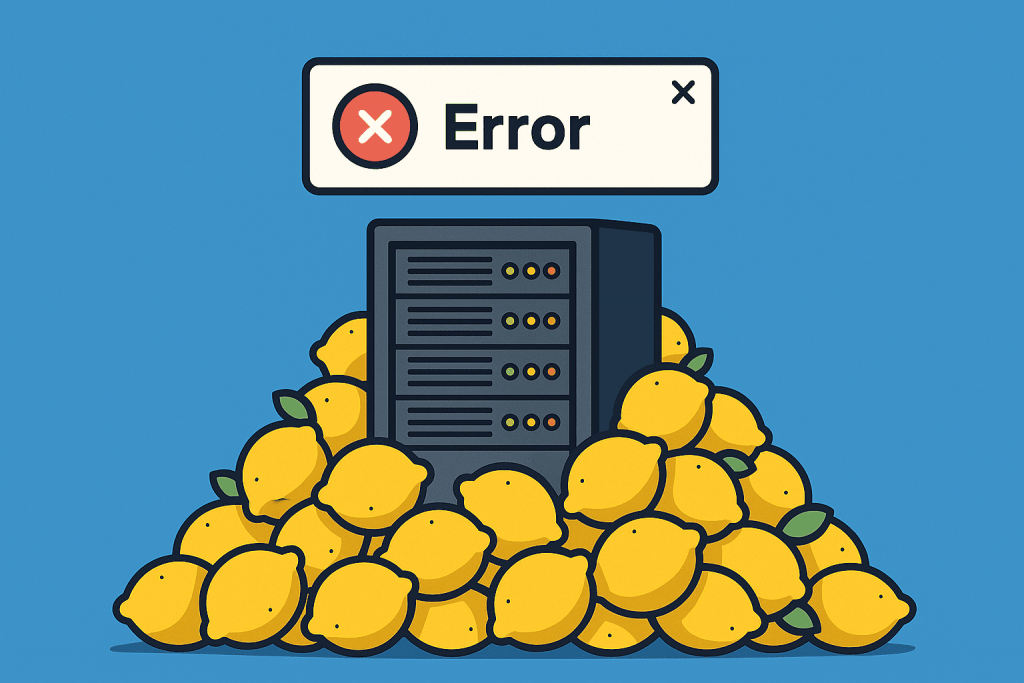
In October 2025, Ukrainian fintech once again proved its ability to create nationwide events — even when it comes to ordinary lemons. Monobank announced a campaign to celebrate reaching 10 million customers and launched an in-app game: users had to find virtual lemons hidden across different sections. Find 10 — enter the draw for an iPhone 17; collect all 50 — get a chance to win ₴1 000 000. The biggest mystery was the “51st lemon” — a secret bonus that, according to the bank’s team, unlocked access to the main prize — a BMW 3 Series.
What seemed like a harmless little game designed to make people smile quickly turned into a real stress test for the bank’s infrastructure. Within hours of the launch, the app noticeably slowed down, and some users saw messages about temporary outages. The reason was obvious: millions of Ukrainians simultaneously rushed to “hunt” the yellow fruit, opening the app dozens of times a day and repeatedly refreshing pages.
The lemon fever that swept the country
No advertisement could have worked better than pure curiosity and excitement. Social media instantly filled with jokes, memes, and hints about where the lemons were “hidden.” People shared screenshots, clues, and theories about possible algorithms. According to monobank itself, over 3 million customers found at least one lemon in the first few days, and hundreds of thousands reached the final set of 50. The app had never seen such activity before.
At the same time, it became a true stress test for the bank’s servers. Even a powerful system capable of handling thousands of transactions per second wasn’t ready for a flood of actions performed simultaneously and continuously for non-financial purposes. Every tap generated a database request — and when there were tens of millions of them, the system simply “paused.” For some users, the app opened with delays or couldn’t display certain sections at all.
However, instead of outrage, Ukrainian social media exploded with humor. Some joked that “the servers are melting from vitamin C,” while others said that “lemons have become the new national currency.” Monobank responded promptly, keeping its signature self-ironic tone that has long been part of its brand. That openness helped the bank turn a technical incident into part of a bigger story — not a crisis.
The mystery of the 51st lemon
The biggest buzz centered around the mysterious 51st lemon. As it turned out, it couldn’t be obtained by simply tapping in the app — you had to make a purchase in monomarket, the bank’s internal marketplace. This idea, meant as a creative continuation of the game, was supposed to pleasantly surprise users and encourage them to try new platform features. But the effect was explosive.
Within hours of the announcement, users began placing massive numbers of orders, hoping it would bring them the coveted bonus. The number of purchases skyrocketed — so much that monomarket faced a system overload. Servers that usually handled predictable traffic couldn’t keep up with the wave of new transactions. And the next day brought a new surge — mass order cancellations. People who realized that the 51st lemon didn’t appear instantly or that their chances of getting it were slim began requesting refunds.
This behavior created additional strain on the bank’s financial system — since every refund also passes through the same servers and databases. As a result, the game turned into a double challenge: first, a test of endurance under massive participation, and then — a stress test for the accounting and refund systems.
When marketing meets technology
This story perfectly illustrates how a single marketing idea can impact an entire technological ecosystem. On the one hand, monobank once again proved that it knows how to create viral events that unite people and strengthen the brand’s image. On the other — even the most brilliant creative ideas must be supported by serious technical preparation.
When a product becomes so popular that users act simultaneously, even short-term slowdowns can trigger a flood of support requests or undermine trust. And while this time the audience reacted with understanding, other companies should take note: every viral effect requires not only creativity but also a solid technical foundation.
Why servers must be ready for heavy loads
Today, when most services operate online, system stability has become a matter of reputation. If a service “crashes” from a wave of clicks, users perceive it as a sign of unreliability — even if the problem is temporary. That’s why large companies regularly conduct load testing, reserve extra resources, and have action plans for peak activity periods.
Monobank’s lemon campaign clearly showed that modern digital infrastructure must be ready for anything — even a flood of clicks from users chasing virtual fruit. In a world where success can go viral in an hour, surviving that wave means not just staying stable but proving true technological maturity.
Once again, monobank set an example for the entire industry: even mistakes can become opportunities for growth. And the main lesson of this “lemon” story is simple — prepare your servers, even if you’re just planning a joke.

Leave a Reply